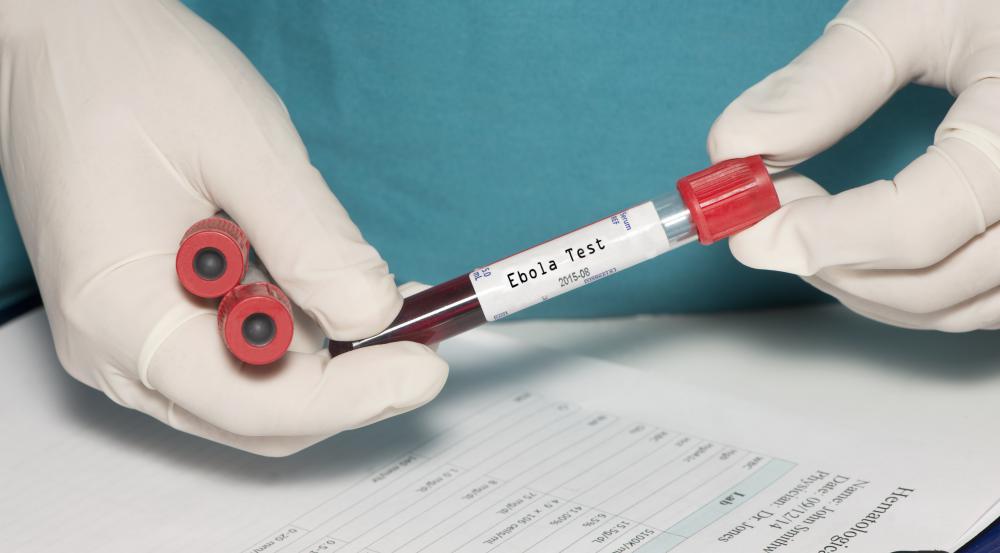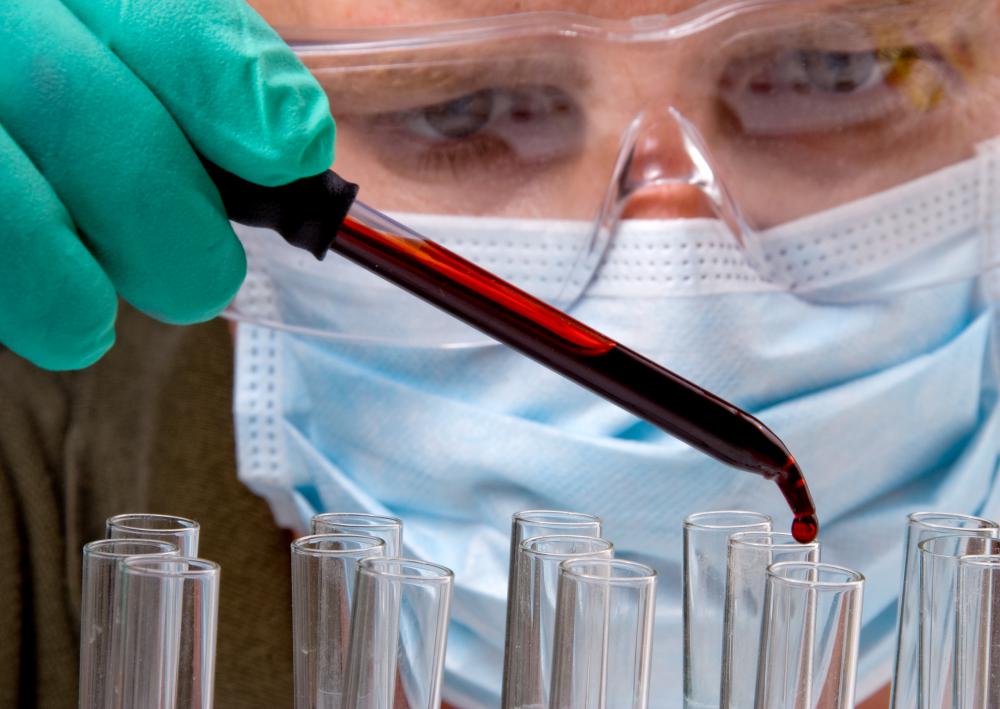At TheHealthBoard, we're committed to delivering accurate, trustworthy information. Our expert-authored content is rigorously fact-checked and sourced from credible authorities. Discover how we uphold the highest standards in providing you with reliable knowledge.
What are the Medical Uses of Polyclonal Antibodies?
Polyclonal antibodies have a wide variety of medical uses and are common components of antivenom, antitoxin, and transplant antirejection drugs. The antibodies are also frequently used in diagnostic laboratory testing and for research. They are often used for their capacity to bind with or neutralize a specific protein.
Antivenom can be produced using polyclonal antibodies. An animal is given injections of small amounts of a particular venom, after which, the animal produces antibodies that attack and neutralize the venom. This course of treatment may extend over months, but after a sufficient number of antibodies are established in the animal's bloodstream, technicians extract the blood. The antibody rich blood undergoes separation, purification, and further processing to isolate the polyclonal antibodies, which can then be used to treat bites from specific species.

Antitoxin, or antiserum, can be manufactured in a similar manner. Laboratories inject animals with small quantities of a particular organism, which produces a polyclonal antibody response that neutralizes the toxin. The extracted blood is then used as the antitoxin for different diseases, such as botulism and tetanus. The blood of individuals who contract and survive microbe generated illnesses might also be used. For example, antiserum from surviving patients is often used as treatment for ebola.

Induction or antirejection agents have also been developed from both monoclonal and polyclonal antibodies derived from animal subjects. These preparations are generally administered immediately following transplant surgery. The antibodies in the serum target and attack the T-cells produced in the blood of transplant patients. When the agent encounters a T-cell, the antibodies in the serum destroy or consume the cell, inhibiting organ and tissue rejection. Studies indicate that patients receiving induction agents containing these antibodies experience fewer side effects compared to those who receive preparations made with monoclonal antibodies.

Laboratories often use polyclonal antibodies to detect disease in blood or tissue samples. The antibodies bind to the surface antigens of viruses or cancer cells, and this binding action is usually visible under a microscopic. Such tests are used to definitively diagnose certain types of encephalitis, HIV, and Lyme disease.
The same technique can be used for cancer detection. For example, the prostate specific antigen (PSA) test combines the blood of patients with polyclonal antibodies for the purpose of cancer cell identification. Researchers also use antibodies to evaluate how cells communicate and interact. Employing this method, scientists may be able to determine the difference between cellular activity under normal conditions and when subjected to disease processes.
AS FEATURED ON:
AS FEATURED ON:













Discuss this Article
Post your comments